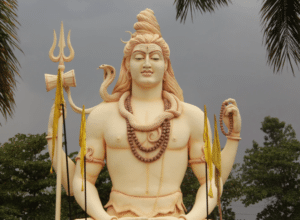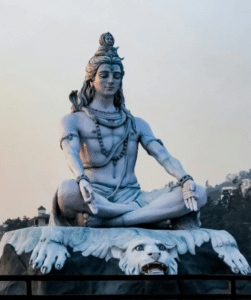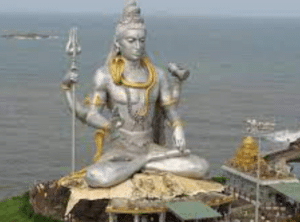Shivaratri: Understanding the Sacred Night of Lord Shiva

Shivaratri, or the Night of Shiva, is one of the most revered and auspicious festivals in Hinduism. Celebrated with great fervor and devotion, it holds significant spiritual importance for millions of devotees worldwide. This sacred occasion is dedicated to Lord Shiva, the third deity of the Hindu Trinity, known as the destroyer and the transformer.

Shivaratri falls on the 14th night of the dark fortnight in the Hindu lunar month of Phalguna (February-March). In this blog post, we delve into the essence of it, its rituals, symbolism, and the deeper spiritual meanings it holds.
The Significance of Shivaratri:

Shivaratri holds profound significance in Hindu mythology and spirituality. It is believed to commemorate the day when Lord Shiva performed the divine dance of creation, preservation, and destruction. Devotees fast, meditate, and offer prayers to seek the blessings of Lord Shiva on this auspicious night. According to Hindu scriptures, observing the rituals of Shivaratri with sincerity and devotion can absolve one of sins, bestow spiritual enlightenment and fulfill desires.

Rituals and Traditions:
The observance of it varies across regions and communities, but certain rituals are commonly practiced by devotees:
- Fasting: Devotees observe a fast throughout the day and night of it. Some may abstain from food and water entirely, while others may consume fruits, milk, and water.
- Vigil (Jagaran): Devotees stay awake all night, engaging in prayers, meditation, and singing hymns in praise of Lord Shiva. It is believed that staying awake during the night vigil pleases Lord Shiva and earns his blessings.
- Abhishekam: The ritualistic bathing of the Shiva Lingam (a symbol representing Lord Shiva) with water, milk, honey, yogurt, and other sacred substances is an integral part of Shivaratri worship. Each offering symbolizes purification, devotion, and the five elements of nature.
- Offerings: Devotees offer Bilva leaves, Dhatura flowers, fruits, and other sacred items to Lord Shiva as a mark of reverence and devotion. These offerings hold symbolic significance and are believed to please the deity.
- Meditation and Chanting: Many devotees engage in meditation and recite Shiva mantras and hymns throughout the night. The repetition of sacred chants such as “Om Namah Shivaya” is believed to invoke the divine presence of Lord Shiva and purify the mind and soul.
Symbolism of Shivaratri:
Shivaratri is not just a religious festival; it is rich in symbolism that reflects deeper spiritual truths:
- Triumph of Good over Evil: The legend of it symbolizes the victory of good over evil. It is believed that Lord Shiva defeated the demon Tripurasura on this auspicious day, signifying the triumph of righteousness and divine grace.
- Destruction and Renewal: Lord Shiva’s cosmic dance, known as the Tandava, represents the eternal cycle of creation, preservation, and destruction. Shivaratri symbolizes the process of destruction, paving the way for regeneration and renewal.
- Inner Transformation: The fast, vigil, and prayers observed on Shivaratri are not merely external rituals but pathways to inner transformation. By surrendering ego, desires, and attachments, devotees seek to awaken their inner divinity and attain spiritual liberation.
- Unity of Shiva and Shakti: Shiva and Shakti, the masculine and feminine energies, are inseparable aspects of the divine. Shivaratri signifies the union of these polarities, representing harmony, balance, and wholeness in the universe.
- Awakening Consciousness: The night of Shivaratri symbolizes a journey from darkness to light, ignorance to enlightenment. It is an invitation to awaken the dormant spiritual consciousness within and experience the blissful state of oneness with the divine.
Celebrating Shivaratri Today:
In contemporary times, it is celebrated with great enthusiasm and devotion by millions of Hindus worldwide. Temples are adorned with lights and decorations, and special prayers and cultural programs are organized to mark the occasion. However, amidst the festivities, it is essential to remember the true essence of Shivaratri – as a time for introspection, spiritual practice, and devotion to Lord Shiva.
Conclusion:
Shivaratri is not just a religious observance; it is a sacred journey of the soul towards transcendence and divine realization. Through fasting, prayers, and meditation, devotees seek to purify the mind, awaken the spirit, and attain union with the supreme consciousness. As we celebrate it, let us imbibe the teachings of Lord Shiva – compassion, detachment, and self-realization – and strive to lead a life of virtue, wisdom, and divine grace. May the divine blessings of Lord Shiva illuminate our path and lead us towards eternal peace and liberation. Om Namah Shivaya!